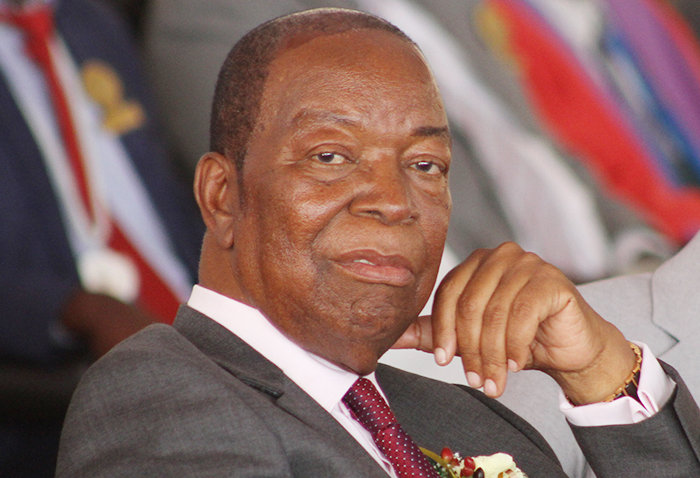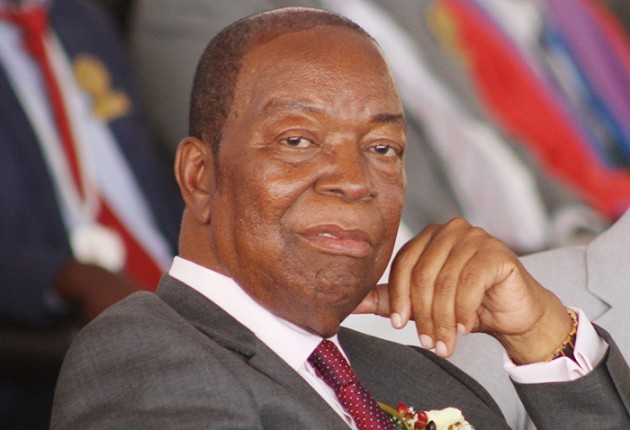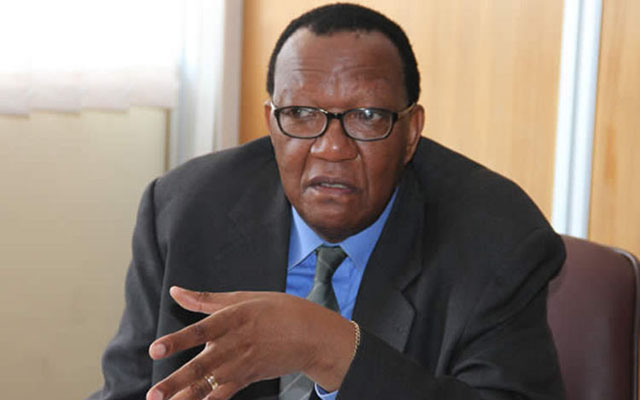EDITORIAL COMMENT: Hero Chidyausiku jurist par excellence

President Mugabe announced yesterday that the late retired Chief Justice Godfrey Chidyausiku had been conferred with national hero status, stressing the pivotal role he played in the land reform programme. It is a fitting tribute to a gallant son of the soil.
There was no doubt among Zimbabweans that Chidyausiku carved a solid place for himself in the history of independent Zimbabwe. Specifically, that began in 1979 when he joined the Zanu-PF legal team at the Lancaster House conference to argue Zimbabwe’s case.
At Independence he served in a number of capacities in Government. He died last week, almost two months after his retirement as the Chief Justice of his country. Those who worked with the late Chief Justice Chidyausiku in various capacities have described him as a competent jurist and a patriot.
Vice President Emmerson Mnangagwa had told mourners in Harare on Friday that consultations on the national hero status of Chidyausiku were in progress. He pointed out: “For the Government and the party, Zanu-PF, he was a hero in his own right. He has done his mandate. As a nation, we feel his loss. Even though he is gone, we feel that he has fulfilled his task on earth.”
This is a view shared by many. Chidyausiku did not simply distinguish himself in a personal capacity as a lawyer. It could be said, in a manner of speaking, he became a lawyer-politician in his sensibilities. That double role became most manifest when Zimbabwe embarked on the road to resolve once and for all the vexed matter of land redistribution to Zimbabwe’s landless majority at the turn of the millennium.
It is not just that the ruling on the Mhuriro case distinguished him as a jurist; it made him a political figure without violating the law. He recognised the individual Mhuriro and at the same time how his supplication captured the sensibility of the entire nation, especially how the matter of the land had been at the heart of the liberation struggle.
It was a delicate balance which very few lawyers could sustain. To many practitioners and judges, the law is treated as an exact science devoid of ideological or political context. With respect, we believe this to be too narrow because in reality, the most odious regimes, including the former apartheid regime in South Africa, operate on the basis of laws passed by those eligible to vote. To that extent, the laws were valid and it was a legal regime in its political context.
The late Chief Justice Chidyausiku could very easily have stuck to the textbook interpretation of the law about the structure of land ownership in Zimbabwe. That was a period when mantras about the rule of law and property rights dominated national discourse. Thankfully, he acted on his conscience and in a historical context.
The law was explicit and firm. What was missing were elements of justice and fairness in the law itself. Respect for the rule of law and property rights as then set in the statutes meant the central agenda of the liberation struggle could not be fulfilled. It meant the majority of black people had been fooled that they were dying to get their ancestral land back. It justified instead, the cause of those who fought against majority rule, for after the war, they would still retain what they obtained through colonial theft.
Justice Chidyausiku would not be complicit in the betrayal of the just cause of the African people. Political independence could not be an end of itself without access to the resources which give freedom meaning. That was his political side, and those decisions changed the course of history not only in Zimbabwe but we feel today the reverberations in the region.
He put into practical effect the dictum that man was not created for the Sabbath. The law must serve the interests of the people with justice and fairness. That is how the late Chief Justice became a hero in his own right as observed by VP Mnangagwa.
Zimbabwe has lost a son who spoke for the majority by ensuring the law complied with a national need. The pressure for land was already too much. There was a risk of complete anarchy.
Chief Chadyausiku deserves our honour and respect as a nation. He indeed fulfilled his task in Zimbabwe.








Comments